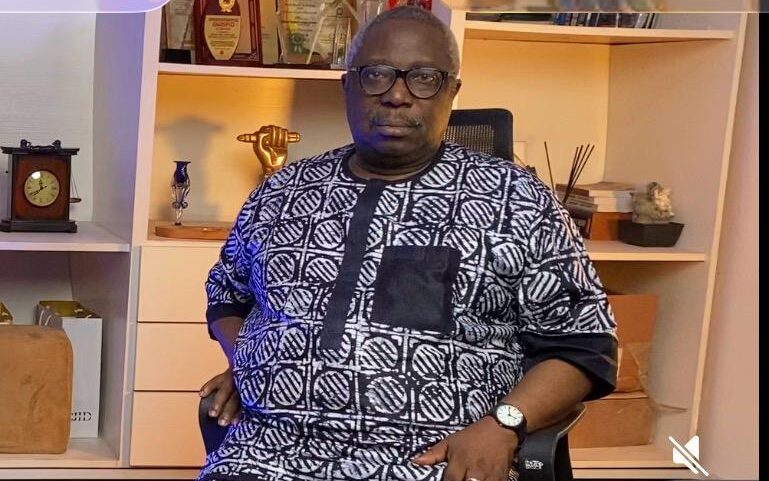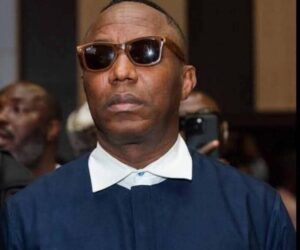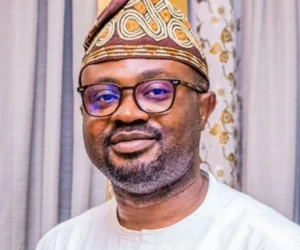I had been trying for months to interview Dapo Olorunyomi (popularly called Dapsy), and he had been “running away” from me, as he later admitted when he finally agreed to a one-on-one interview at his office on Mambolo Street, Abuja.
It is easy to look past that shortcoming. Dapsy himself is a gracious man: always noble and generous in overlooking the mistakes of others. I got that impression from many people who had encountered him.
In a book of tributes titled Testimony to Courage, published when he turned 62, many of his friends, colleagues, siblings, mentees, and mentors painted a picture of a complex man.
To his teachers, he is a brilliant but confused student; to his siblings, a generous but enigmatic brother; to his friends, a bookish and bohemian spirit, yet loyal and affable; to his mentees, a warm and supportive man who puts people at ease in his company, but at the same time, too playful to offer critical opinions about character flaws; and to his staff, a compassionate and inspirational boss whose laissez-faire leadership style sometimes gets in the way of effective management.
He is Andrew Ames, the fictional character in Complex Man, who constantly seeks reconciliation with contradicting realities rather than escape. Observing him closely and from afar, and through the lens of those who work with him, I often see an individual who truly embodies the contradictions of modern man, seeking meaning in a fragmented and complex world. Testimony to Courage indeed bears testimony to the complexity of the man named at birth Adeniran Oyekunle Oyedapo Olorunyomi.

Surprisingly, Dapsy, a bookworm, told me he has yet to read the book. “I’m afraid. It’s too gushing in some places,” he said in his usual playful manner. Had he read the book, he probably would have discovered that his siblings think he is a rebel and sometimes a reckless daredevil, labels, I believe, he may not contest.
During the interview, I narrated to him the account of his brother, Sola Olorunyomi, a professor at the University of Ibadan. Dapsy, his brother said, was always missing at the dinner table when other family members were seated. If he ever appeared, he would show up without a bib, unlike the others.
And when they asked him why, his response was usually, “Do I look like a kid?” He was also the one often missing during morning devotion prayers. His parents were devout Christians. His grandfather, in fact, was a reverend who brought the Baptist Church to a community now known as Ijumu Local Government Area in Kogi State.
So, while one might expect him to follow in the footsteps of his forbears, observing Christian traditions and immersing himself in the Holy Books, he preferred reading dense and “godless” philosophers such as Theodor Adorno, Walter Benjamin, and Louis Althusser. “I am just curious about knowledge,” he said. Little wonder he ended up in the Faculty of Humanities at the University of Ife, where Professor Wole Soyinka and Professor Biodun Jeyifo, former ASUU president, ruled the roost. Mr Jeyifo would eventually supervise his master’s thesis.
“Without question, I always gravitate to the whole tradition of liberty and freedom, and of a just society,” he said. Unlike his schoolmate and friend Femi Falana, a human rights advocate who studied law at Ife, Dapsy found expression for these noble ideals through investigative journalism.
He got the chance to work at The Guardian, a newspaper commonly regarded as the flagship of Nigerian journalism. Dapsy later made a dent that cost him his freedom and that of others. As the assistant editor of African Concord, he wrote a cover story that landed some of his colleagues in jail.
The military junta would brook no dissent from rabble-rousers, as journalists were often perceived. And when he founded The NEWS alongside other irreverent pen-pushers like Kunle Ajibade and Bayo Onanuga, they took adversarial journalism a notch higher.
When the Sanni Abacha regime went rogue, journalists like Dapsy became targets. His friend Ajibade was jailed for life; Bagauda Kaltho went missing and has never been found. But Dapsy was lucky. He got a tip-off that helped him escape into exile through the NADECO route, where he spent years planning with other June Twelfthists to truncate Abacha’s tyranny.
Dapsy told me that he actually wanted to escape to South Africa, not the US. But the South African embassy then was directly opposite the Police Headquarters, and walking there would have meant walking into a trap with eyes wide open.
In the US, he worked for Freedom House, where he spent a lot of time advocating for freedom of expression, the rule of law, and human rights. He returned to Nigeria only after Abacha’s death and later took the job of Chief of Staff to the Chairman of the Economic and Financial Crimes Commission (EFCC), Nuhu Ribadu.
It was a tough job. He survived a couple of assassination attempts. When their tenure ended, and Ribadu himself became a hunted man, Dapsy decided to return to the US. It was around the same time that Dele Olojede, the first African to win a Pulitzer Prize, was setting up the NEXT 234 newspaper. Olojede heard that Dapsy was relocating and called him.
It was an offer to serve as the Enterprise Editor of a newly avant-garde newspaper. Olojede shared his vision, and Dapsy accepted, but not without a warning: “This business will bite you,” he said. His prophecy came true. NEXT became a gadfly to the Nigerian power elite, and they did everything within reach to kill it. Short story: NEXT folded up, and Olojede returned to his refuge in Stellenbosch, South Africa.

But it was not over for Dapsy. He founded Premium Times with Musikilu Mojeed, his trusted ally at NEXT. Learning from NEXT’s mistakes, they decided early on that PT would be a digital newspaper. They diversified PT’s revenue stream to include grant-seeking, a successful strategy.
READ ALSO: Premium Times reporter emerges first runner-up in Ray Ekpu Prize for Investigative Journalism
Today, Premium Times has become a trailblazer in enterprise journalism, raising many hard-nosed journalists who keep Nigeria’s power elite in check. It is a paper that espouses the vision of one man who, very early in life, rose above the fears and unbridled greed of the plebeians who have now joined the Nigerian elite class.
Happy birthday, Dapsy.
Ajibola Amzat is the Africa Editor for the Centre for Collaborative Investigative Journalism (CCIJ) and co-publisher of WikkiTimes.










